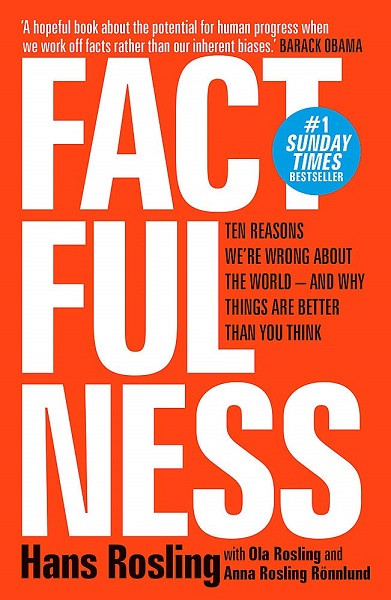Klassiker des demokratischen Denkens – moderner als die Gegenwart!
Jeder weiß, dass die Verfassung der USA ein Musterbild für einen demokratischen Staat ist, und ein Musterbild für einen Bundesstaat noch dazu. Aber warum eigentlich? Was sind die Ideen hinter den teilweise seltsam anmutenden Regelungen dieser Verfassung? Diese Frage wird nicht von der Verfassung selbst beantwortet, sondern von den sogenannten „Federalist Papers“, einer Reihe von Zeitungsartikeln von 1787/88, die das Volk des Staates New York davon überzeugen sollten, der vorgeschlagenen Verfassung zuzustimmen. Dieser Klassiker der politischen Philosophie ist auch heute noch lesenswert, weil er Weisheit und Einsicht des Lesers fördert, und weil er zu kritischem Nachdenken über die eigene, heutige Staatsverfassung herausfordert.
Wenn man die eigene Verfassung oder die derzeitige Verfassung der Europäischen Union mit den Ideen der US-Verfassung vergleicht, überkommt einen nicht selten der Zorn über so viel Unsinn und interessegeleiteten Polit-Traditionalismus in Europa, und der Neid auf so viel Klugheit und 200jährige Modernität in Amerika. Fast möchte man zum Revolutionär werden …
Zum Inhalt
Die „Federalist Papers“ sprechen die US-Verfassung thematisch Punkt für Punkt durch: Sinn des Bundesstaates, Zuständigkeiten von Bund und Einzelstaaten, Gewaltenteilung (Armee, Steuern, etc.), Zusammensetzung und Befugnisse von: Repräsentantenhaus, Senat, Präsident, Justiz. Da es sich um Zeitungsartikel handelt, gibt es manche Wiederholung und kein ganz allzu systematisches Inhaltsschema, aber für ein über 200 Jahre altes Buch liest es sich immer noch recht modern.
Es ist sehr interessant zu sehen, wie die Verfassungswirklichkeit hinter der geschriebenen Verfassung diskutiert wird. Häufig entwickeln sich Dinge nämlich ganz anders, als sie beabsichtigt waren. Eine Regelung wird vielleicht nie genutzt, weil sie Nachteile mit sich bringt, eine andere Regelung wird anders genutzt, als gedacht. Die Balance zwischen den drei Gewalten Legislative, Exekutive und Judikative kommt in Schieflage und eine Gewalt dominiert die beiden anderen Gewalten: Was mit guter Absicht in einer Verfassung geregelt wurde, kann trotzdem schiefgehen, weil es an der Wirklichkeit vorbeigeht.
Um dies zu erkennen, benötigt man Menschenkenntnis, Lebenserfahrung, Geschichtswissen und eine gesunde Skepsis. Das ist hier reichlich zu finden und man kann viel davon lernen. So heißt es z.B. in Nr. 71: „It is a just observation, that the people commonly intend the public good. This often applies to their very errors. But their good sense would despise the adulator who should pretend that they always reason right about the means of promoting it.“
Manchmal ist es besser, die Verfassungsorgane blockieren sich gegenseitig: Besser, ein gutes Gesetz wird abgelehnt, als dass ein schlechtes Gesetz angenommen wird. Andererseits wenden sich die Federalist Papers auch gegen eine zu große Skepsis und rät zur Akzeptanz von kleineren Übeln, um die Verfassung funktionsfähig zu halten. Besser, die Exekutive ist in einer starken Hand, als in der Hand eines Kollektivs, das vielleicht informell von einer Person beherrscht wird, und man nicht mehr weiß, welches Mitglied des Kollektivs man verantwortlich machen soll.
Die Gewaltenteilung wird hier ebenfalls anders diskutiert, als man es gemeinhin kennt. Die Gewalten sollen zwar getrennt voneinander sein, aber es werden ganz gezielt und mit voller Absicht diverse Überschneidungen der Gewalten in die Verfassung eingebaut. Der Sinn dahinter ist, dass sich die Gewalten gegenseitig in Schach halten können, um auf diese Weise ihre Trennung auch machttechnisch abzusichern. Denn nur weil es auf dem Papier steht, ist die Trennung der Gewalten noch lange nicht gesichert.
Die bundesstaatliche Ebene darf sich nicht auf den guten Willen der Einzelstaaten verlassen, dass diese einmal gemachte Zusagen schon einhalten werden – sie werden es nicht, und dann ist der Streit zwischen den Einzelstaaten da: „There is, perhaps, nothing more likely to disturb the tranquillity of nations than their being bound to mutual contributions for any common object that does not yield an equal and coincident benefit. For it is an observation, as true as it is trite, that there is nothing men differ so readily about as the payment of money.“ (Nr. 7). – Der Bundesstaat muss vielmehr unabhängig von der Zustimmung der Einzelstaaten handlungsfähig sein, indem er z.B. eigene Beamte hat und eigene Steuern direkt beim Bürger eintreibt. Die Einzelstaaten und der Bundesstaat wirtschaften völlig unabhängig voneinander. Dann können Gerechtigkeits- und Verteilungsprobleme gar nicht erst entstehen.
Antike
Es ist hochinteressant zu sehen, wie die „Federalist Papers“ das antike Erbe aufgreifen! Anders als man meinen könnte, wird nicht – praktisch überhaupt nicht! – auf die politische Philosophie der Antike zurückgegriffen. Was Platon, Aristoteles und Cicero über Demokratie und gemischte Verfassung, den Kreislauf der Staatsformen und die Vorzüge der römischen Republik geschrieben haben, wird nirgendwo als Argument herangezogen.
Den Grund erfährt man in Nr. 14 im Rahmen einer Lobrede auf das amerikanische politische Denken: „But why is the experiment of an extended republic to be rejected, merely because it may comprise what is new? Is it not the glory of the people of America, that, whilst they have paid a decent regard to the opinions of former times and other nations, they have not suffered a blind veneration for antiquity, for custom, or for names, to overrule the suggestions of their own good sense, the knowledge of their own situation, and the lessons of their own experience?“ – Nicht weil irgendeine Autorität einst irgend etwas sagte, sondern nur wenn es vernünftige Argumente gibt, soll etwas gelten. Obwohl dies auf den ersten Blick nach einer Ablehnung der Antike aussieht, ist es in Wahrheit die genaue Nachahmung des antiken Denkens. Denn wie Platon argumentieren sie ohne Gehorsam gegenüber Autoritäten und nur nach ihrer Vernunft.
In einem weiteren Punkt kommt eine Ähnlichkeit zu Platon zum Ausdruck: Die „Federalist Papers“ argumentieren ständig gegen die Argumente der Verfassungsgegner. Diese kommen zwar nicht zu Wort, aber dennoch gewinnen die „Federalist Papers“ dadurch einen deutlich dialogischen Charakter. Man hat an manchen Stellen das Gefühl, wie wenn Sokrates mit einem Sophisten spräche und dessen Ansichten zerlege, bis nichts mehr davon übrig ist.
Dass die Autoren der „Federalist Papers“ die antike politische Philosophie sehr wohl kannten, kommt an einigen wenigen Stellen zum Ausdruck. So heißt es in Nr. 49: „But a nation of philosophers is as little to be expected as the philosophical race of kings whished for by Plato.“ – In Nr. 51 heißt es: „But what is government itself, but the greatest of all reflections on human nature?“ und: „Justice is the end of government.“ („end“=Ziel) – Damit ist eine teils zustimmende Kenntnis von Platons politischer Philosophie klar belegt.
In expliziter Form kommt die Antike auf eine ganz andere Weise massiv zum Tragen: Nicht die Philosophen und ihre politischen Theorien, sondern die antiken Geschichtsschreiber und ihre Berichte über Zustände und Ereignisse in den antiken Staaten werden exzessiv als Beispiele in den „Federalist Papers“ herangezogen! Schon immer haben die Staatsphilosophen auf der Grundlage realer historischer Ereignisse argumentiert, und das geschieht natürlich auch hier. Einige wenige Beispiele mögen sein: Die Frage, ob ein Flächenstaat eine Demokratie sein kann; die Macht eines Einzelnen über eine Volksversammlung; das Amt des Dikators in der römischen Republik. Folgende Zitate aus Nr. 63 seien noch angeführt: „… that the position concerning the ignorance of the ancient governments on the subject of representation, is by no means precisely true in the latitude commonly given to it.“ und: „What bitter anguish would not the people of Athens have often escaped if their government had contained so provident a safeguard against the tyranny of their own passions?“ und: „… that history informs us of no long-lived republic which had not a senate. Sparta, Rome, and Carthage are, in fact, the only states to whom that character can be applied.“
Man darf auch nicht vergessen, dass hinter praktisch allen Ideen der US-Verfassung antike Ideen wie z.B. die Gewaltenteilung stehen, die über verschiedene Autoren wie z.B. Montesquieu weiterentwickelt wurden, so dass der antike Hintergrund nur indirekt erschließbar ist.
Nicht zuletzt ist die Wahl des Autoren-Pseudonyms „Publius“ in Anlehnung an den römischen Konsul Publius Valerius Publicola ein unabweisbarer Bezug zur Antike. Die Anti-Föderalisten nannten sich hingegen „Cato“ oder „Brutus“: Der geistige Streit fand ganz auf antiker Bühne statt.
Sonstiges
Das Thema „Parteien“ wird überhaupt nicht angesprochen. Diese spielen heute eine große Rolle, kommen aber nicht vor, was schade ist. – Die Frage, ob die Bürger denn überhaupt demokratisch gesinnt sind, wird ebenfalls nicht gestellt. Davon wird einfach ausgegangen. Immer wieder werden Sätze eingestreut wie dieser: „the people of this country, enlightened as they are with regard to the nature, and interested, as the great body of them are, in the effects of good government“ (Nr. 37). Wir nehmen die Botschaft mit: Die Qualität einer Demokratie entscheidet sich auch an der Aufgeklärtheit und demokratischen Gesinnung und Anteilnahme ihrer Bürger.
Bewertung: 5 von 5 Sternen.
(Erstveröffentlichung auf Amazon am 29. November 2013)








